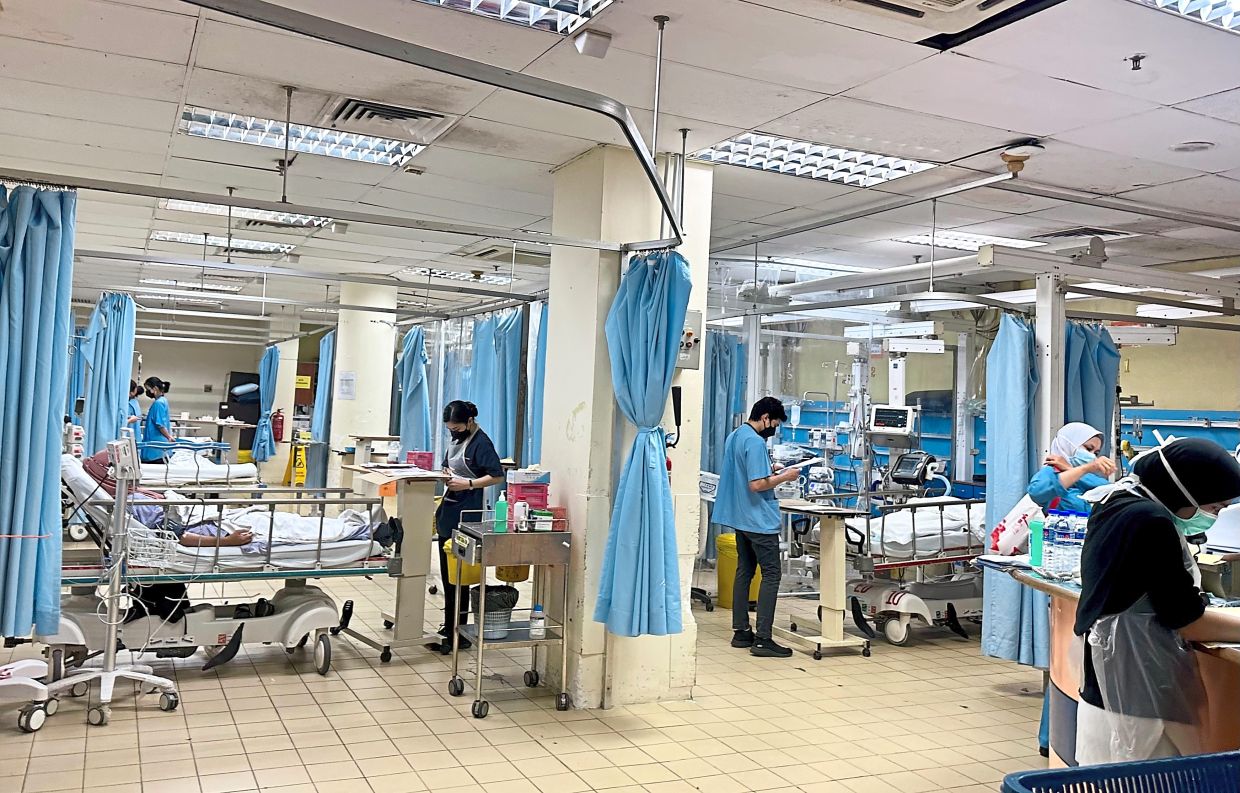THE Malaysian Medical Association (MMA) has called for urgent reforms in the private healthcare sector to address critical issues affecting private healthcare specialists and general practitioners, the sustainability of private healthcare facilities, healthcare costs and the sector’s ecosystem.
Its president Datuk Dr Kalwinder Singh Khaira said the increasing cost of treatment in private hospitals is largely influenced by hospital services and supplies rather than doctors’ professional fees.
“Despite this, many private medical specialists are still facing pressure to reduce their chargeable fees, directly and indirectly, which ultimately will affect the quality and sustainability of specialist treatment services in the private sector,” he lamented.
“In addition, there exists a gap in private health insurance coverage, with many policies not covering modern and newer treatments such as immunotherapy and targeted therapies.
“As a result, patients are at times, left in a quandary and forced to seek partial treatment at private hospitals before needing to move to public hospitals due to financial caps and restrictions, causing disruptions in the continuity of healthcare.”
According to Dr Kalwinder, another key issue that needs to be addressed is the role of Third Party Administrators (TPAs) who remain unregulated despite being a major contributor to rising costs in private healthcare.
TPAs, the middlemen who provide managed care services determine treatment prices, delay payments, and impose unnecessary administrative burdens, ultimately increasing costs for doctors and patients.
“MMA has urged Bank Negara Malaysia (BNM), as well as the Health Ministry (MOH) to intervene and take a more active role in regulating TPAs,” he stated.
Dr Kalwinder further noted that delays in processing insurance claims and excessive pre-approval requirements by insurance companies continue to restrict patients’ access to timely treatment, especially for critical illnesses.
“It is MMA’s view that there should be more effective regulation and oversight on this aspect by Bank Negara to ensure apt and timely care to those insured is not delayed nor denied,” he added.
In addition he said the diagnosis-related group (DRG) highlighted many times as a possible panacea for increasing costs, and the resulting increasing insurance premiums also needs to be more closely examined.
Dr Kalwinder said MMA has reviewed the results and challenges faced by many countries that have implemented DRG and has concluded that if it is not well studied and implemented, it will lead to failure.
DRG is implemented in countries backed by a ‘national health insurance’ and has been implemented in phases in those countries.
“Hence it is vital to learn from other countries to identify the most suitable approach for Malaysia if at all DRG, or (a version of it) is implemented,” he said. – March 7, 2025
Main image: The Star









